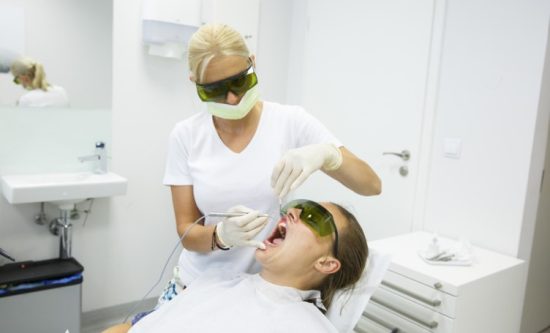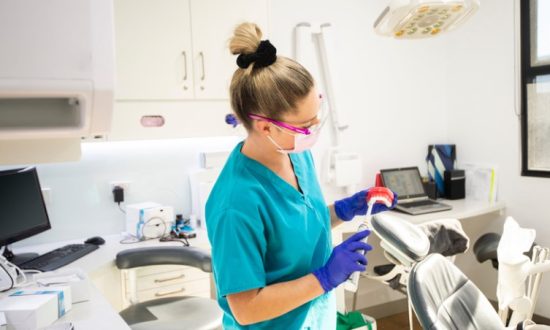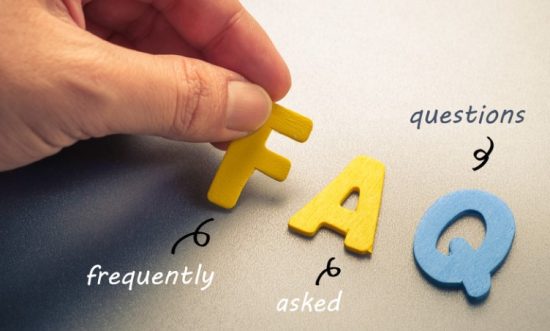Are you considering a career as a dental hygienist in British Columbia? Or maybe you’re just curious about how much these professionals make on average? Well, look no further! In this blog post, we’ll explore the numbers and the average dental hygienist salary in B.C. Get ready to learn some surprising facts about this rewarding career and what kind of paycheck you can expect if you pursue it.
Introduction to Dental Hygiene in B.C.
Dental hygienists are an important part of the dental team. They work closely with dentists and other dental professionals to provide preventive care and education to patients. They also provide oral health assessments and teeth cleanings.
If you’re interested in becoming a dental hygienist, you should know a few things. First, you’ll need to complete an accredited dental hygiene program. In B.C., four programs are approved by the Canadian Dental Association: Vancouver Island University, Douglas College, Camosun College, and Northern Lights College.
Once you’ve completed an accredited program, you’ll need to pass the National Dental Hygiene Certification Exam (NDHCE) in order to become licensed in B.C. The NDHCE is offered by the Canadian Dental Hygienists Association (CDHA).
Once you’re licensed, you can start working as a dental hygienist in B.C
What is the Average Dental Hygienist Salary in B.C?

According to the British Columbia Dental Association, the average dental hygienist salary in B.C. is $53.53 per hour. This means dental hygienists in B.C. earn an average of $109,538 annually.
Additionally, dental hygienists in B.C. can also expect to receive a number of other benefits, such as health insurance, professional development opportunities, and pension contributions.
Factors Affecting the Salary of a Dental Hygienist in B.C.
The average dental hygienist’s salary in B.C. is $53.53 per hour, or $109,538 per year, according to the most recent data from the Canadian Institute of Health Information (CIHI). However, several factors can affect how much a dental hygienist earns in B.C., including experience, location, and type of employer.
For example, entry-level dental hygienists in B.C. earn an average of $33.59 per hour, or $69,920 per year, while those with more than five years of experience earn an average of $55 per hour or $120,000 per year. Dental hygienists in rural areas also tend to earn less than those in urban areas; the average hourly wage for rural dental hygienists is $48.50, while the average hourly wage for urban dental hygienists is $53.53.
The type of employer can also affect earnings; dental hygienists who work in private clinics typically earn more than those who work in public hospitals or community health centres. Finally, the number of hours worked can also have an impact. Dental hygienists who work part-time or on a casual basis may earn less than those who work full-time or on a permanent basis.
In summary, the salary of a dental hygienist in B.C. can vary depending on experience, location, type of employer, and number of hours worked.
Benefits and Challenges of Working as a Dental Hygienist in B.C.

There are many benefits to working as a dental hygienist in British Columbia. The province is home to some of the best dental schools in the country, which means that there are plenty of opportunities for continuing education and career advancement. A number of challenges come with the job, such as dealing with challenging patients and working long hours. However, the rewards of helping people achieve and maintain good oral health make it all worth it.
Benefits
Good salary and benefits: Dental hygienists in British Columbia have competitive salaries and generous benefits packages. The average salary is around $70,000 per year, potentially making even more with bonuses or raises.
Flexible working hours: Dental hygienists in B.C. often have flexible working hours, allowing them to work part-time or full-time depending on their needs and wants. This is especially beneficial to those who wish to maintain a good work-life balance.
Variety of roles: As a dental hygienist in B.C., you can specialize in a wide variety of roles, including clinical practice, research, public health education and administration. This allows you to explore different dentistry areas and hone your skills wherever your interests lie.
Job Security: Dental hygiene is an essential profession that will always be in demand due to its importance for individuals’ and communities’ overall health and well-being.
Challenges

Mentally and physically demanding job: Dental hygiene is a physically and mentally demanding job that requires a lot of concentration and skill. It can involve long hours, bending and reaching, and dealing with challenging patients.
Working with hazardous materials: Dental hygienists must also be aware of the risk of exposure to hazardous materials such as mercury, lead and radiation during their work. They need to take proper safety precautions when working with these materials to protect themselves and their patients.
Dealing with complex dental issues: Dental hygienists often have to deal with complex dental issues requiring advanced skills to diagnose and treat them properly. Depending on the case, this can be challenging and rewarding, but it requires a high level of knowledge and expertise to succeed.
Tips on How to Increase Your Salary as a Dental Hygienist in B.C.
As a dental hygienist in B.C., there are a few things you can do to increase your salary. Firstly, consider pursuing further education and training opportunities. This will make you more attractive to potential employers and help you command a higher salary. Secondly, take on additional responsibilities at your current job or look for new opportunities that offer more responsibility and pay.
Be sure to keep up with the latest industry trends and developments so that you can show employers that you are an expert in your field. By following these tips, you can significantly increase your salary as a dental hygienist in B.C.
Conclusion
The average dental hygienist’s salary in British Columbia is quite good, and the job provides an excellent opportunity for professionals who want to be financially secure. With a combination of knowledge, skill, and dedication to their work, dental hygienists can make a great living while helping others maintain healthy teeth and gums.
Many employers also offer competitive benefits packages, including health insurance or other perks that can make the job even more attractive. Suppose you’re interested in becoming a dental hygienist in B.C. In that case, it’s worth taking some time to research your options and find out what kind of compensation you might be able to expect before making any commitments.
FAQ – Dental Hygienist Salary in B.C

How long does it take to become a Dental Hygienist BC?
Becoming a dental hygienist in B.C. takes about three years, including completing an accredited dental hygiene program and passing the National Dental Hygiene Certification Exam.
How much does a registered Dental Hygienist earn in Vancouver?
In Vancouver, a registered Dental Hygienist earns an average salary of $109,078 annually. This figure is based on the salaries submitted to Glassdoor by Registered Dental Hygienists in Vancouver.
Where is the highest paying Dental Hygienist in Canada?
According to the Canadian Dental Hygienists Association, Alberta is the highest-paying province for dental hygienists. The average dental hygienist’s salary in Alberta is $54.65 per hour. British Columbia is the second highest-paying province, where the average dental hygienist’s salary is $53.30 per hour.
What is the lowest paid dental hygienist?
The lowest-paid dental hygienist in B.C. is $37.50 per hour. This is significantly lower than the average dental hygienist salary in B.C., which is $53.30 per hour. There are a number of reasons why the lowest-paid dental hygienist may be earning less than the average salary. For example, they may be new to the profession and have less experience than other dental hygienists. Additionally, they may work in a rural area where there is less demand for dental services.
Where do most dental hygienists work?
According to the most recent data from the Canadian Dental Association, the majority of dental hygienists in Canada work in private dental offices (69.5%), followed by public health settings (15.5%) and corporate/group dental practices (8.4%).










